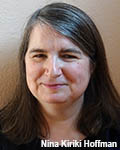2016
Martha Bayless
- Professor
- University of Oregon

Abstract
Bread, the “staff of life”—a staple in a wide range of cultures since the advent of agriculture—has long occupied a vital position in Western food and as a result in cultural and imaginative life. In England, as in English-derived culture in the United States, the significance of bread is reflected in multiple realms: in the history and success of English population growth and expansion, in the culture of bread and its expression in religion, and in literary and textual reflections of the importance of bread to status and community. Bread was vital to survival, in its nutritive sense; to civilization, in the flexibility and abundance of bread; and to salvation, in its role as moral agent. In this project, historians Debby Banham and Martha Bayless analyze bread as a cultural force in Anglo-Saxon England using a wide range of sources, including historical, legal, and theological texts, literature, vocabulary, contemporary images, and archeological and paleobotanical findings. The collaboration between Banham, a social and economic historian with interest in medicine, diet, and food production, and Bayless, a cultural historian of the early medieval period with experience in anthropology and food studies, aims to produce a 360-degree view of Anglo-Saxon culture. The result of this research will be a coauthored book illuminating both the day-to-day as well as the larger themes of early English bread culture from a multi-disciplinary perspective and demonstrating the ways in which a staple foodstuff formed a nexus of social practice and moral meaning that was imbued with symbolic and cultural significance. These changing dietary fashions at the beginning of English history brought about transformations that shape lives across the globe today. Award period: August 1, 2016 through August 31, 2017

